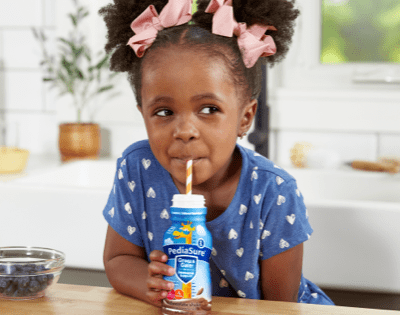Pediasure is a popular nutritional supplement for children that is often recommended for picky eaters or those who require additional nutrients. While it has gained significant popularity and is trusted by many parents, there have been concerns and debates surrounding the potential pediasure side effects. In this article, we will go beyond the hype and delve into the real risks associated with Pediasure side effects. We will provide you with an unbiased analysis of the available information so that you can make an informed decision about your child’s nutrition.
1. Introduction
Pediasure is a widely recognized nutritional supplement designed to provide children with essential vitamins, minerals, and nutrients. It aims to bridge the nutritional gaps that may arise from a child’s inadequate diet. However, with the increasing popularity of Pediasure, concerns have been raised regarding its potential side effects. It is important to separate fact from fiction and explore the real risks associated with the use of Pediasure.

2. Understanding Pediasure
Pediasure is a brand of nutritional shake formulated specifically for children. It is marketed as a complete and balanced source of nutrition, containing a blend of macronutrients, micronutrients, and other essential components. The goal of Pediasure is to support the overall growth and development of children, especially those who have difficulty meeting their nutritional requirements through regular food intake alone.
3. Common Ingredients in Pediasure
Pediasure contains a range of ingredients that contribute to its nutritional profile. Some of the common ingredients found in Pediasure include:
- Protein: Pediasure typically contains a blend of milk proteins, such as whey protein concentrate and casein. These proteins provide essential amino acids necessary for growth and development.
- Carbohydrates: The carbohydrates in Pediasure primarily come from sugars and maltodextrin. They serve as a source of energy for children.
- Fats: Pediasure incorporates a combination of vegetable oils to provide essential fatty acids, which are important for brain development and overall health.
- Vitamins and Minerals: Pediasure is fortified with various vitamins and minerals, including vitamin A, vitamin D, calcium, iron, and zinc, among others.
4. Potential Allergic Reactions
Like any other food product, Pediasure may trigger allergic reactions in some children. Common allergens found in Pediasure include milk proteins and soy. If your child has known allergies or sensitivities to these ingredients, it is crucial to consult with a healthcare professional before introducing Pediasure into their diet.
5. Digestive Issues and Upset Stomach
Pediasure contains a significant amount of nutrients and may sometimes lead to digestive issues or an upset stomach, especially when introduced abruptly or consumed in excessive quantities. Symptoms such as bloating, gas, diarrhea, or constipation can occur. It is advisable to gradually introduce Pediasure into your child’s diet and monitor their response closely. If any discomfort persists, consult a healthcare provider.
6. Impact on Weight and Appetite
Pediasure is often recommended for children who have difficulty gaining weight or have a poor appetite. While it can be beneficial in such cases, over-reliance on Pediasure as a sole source of nutrition may lead to a decreased appetite for regular meals. It is important to strike a balance and use Pediasure as a supplement rather than a replacement for a varied and balanced diet.
7. Nutrient Imbalance
Although Pediasure aims to provide a comprehensive range of nutrients, excessive or prolonged use without medical supervision may result in an imbalance of certain nutrients. This can potentially lead to deficiencies or excessive intakes of specific vitamins or minerals. It is crucial to follow the recommended dosage guidelines and consult a healthcare professional for personalized advice.
8. Excessive Sugar Content
Pediasure contains sugar as one of its carbohydrate sources. While it contributes to the taste and palatability of the supplement, excessive sugar consumption can have negative effects on dental health and overall well-being. It is important to monitor your child’s sugar intake from all sources, including Pediasure, and encourage a balanced diet.
9. Artificial Additives and Preservatives
Pediasure may contain artificial additives and preservatives to enhance its flavor, texture, and shelf life. Some children may be sensitive to these additives, leading to adverse reactions such as hyperactivity or gastrointestinal symptoms. If you suspect your child is reacting to specific additives, consult a healthcare professional for further evaluation.
10. Interactions with Medications
Certain medications or medical conditions may interact with the components present in Pediasure. It is crucial to inform your child’s healthcare provider about all medications, supplements, or underlying health conditions before incorporating Pediasure into their routine. This ensures safe and appropriate usage without any potential complications.
11. Potential Impact on Growth and Development
While Pediasure is marketed to support growth and development, it is essential to note that it is not a magical solution. It is a supplement designed to complement a balanced diet, and its efficacy may vary among individuals. It is important to prioritize a varied and nutrient-rich diet to ensure optimal growth and development in children.
12. Recommendations for Safe Usage
To ensure the safe usage of Pediasure and minimize potential risks, consider the following recommendations:
- Consult with a healthcare professional before introducing Pediasure into your child’s diet, especially if they have known allergies or underlying medical conditions.
- Follow the recommended dosage guidelines provided by the manufacturer or healthcare professional.
- Use Pediasure as a supplement and not as a replacement for regular meals.
- Monitor your child’s response to Pediasure closely, especially during the initial stages of introduction.
- Encourage a balanced and varied diet alongside Pediasure to promote overall nutritional intake.
13. Alternatives to Pediasure
If you have concerns about Pediasure or it is not suitable for your child, several alternatives can fulfill similar nutritional requirements. Some options include:
- Homemade nutritional shakes or smoothies using whole foods and natural ingredients.
- Other commercially available pediatric nutritional supplements recommended by healthcare professionals.
- Focus on providing a balanced diet with nutrient-dense foods and incorporating variety to meet your child’s nutritional needs.
14. Conclusion
Pediasure can be a beneficial nutritional supplement for children, but it is essential to be aware of the potential risks and side effects. By understanding the ingredients, possible allergic reactions, and considering safe usage guidelines, you can make an informed decision regarding Pediasure and your child’s nutritional needs. Remember that individual responses may vary, and it is always advisable to consult a healthcare professional for personalized advice.





